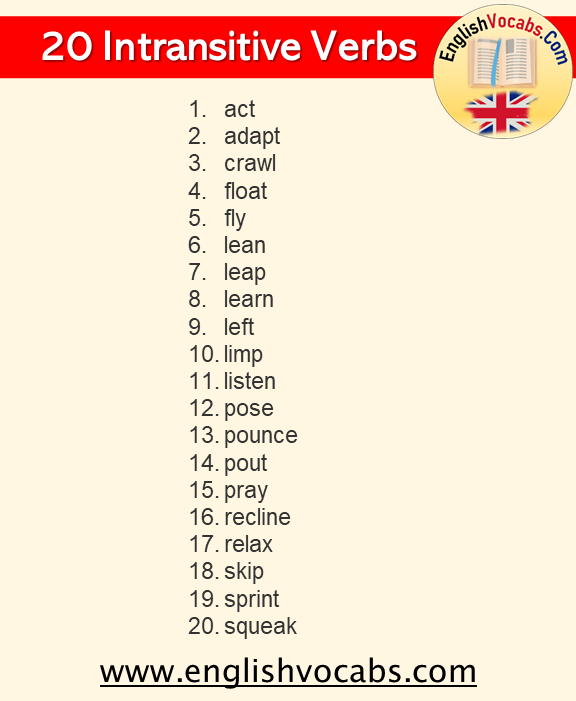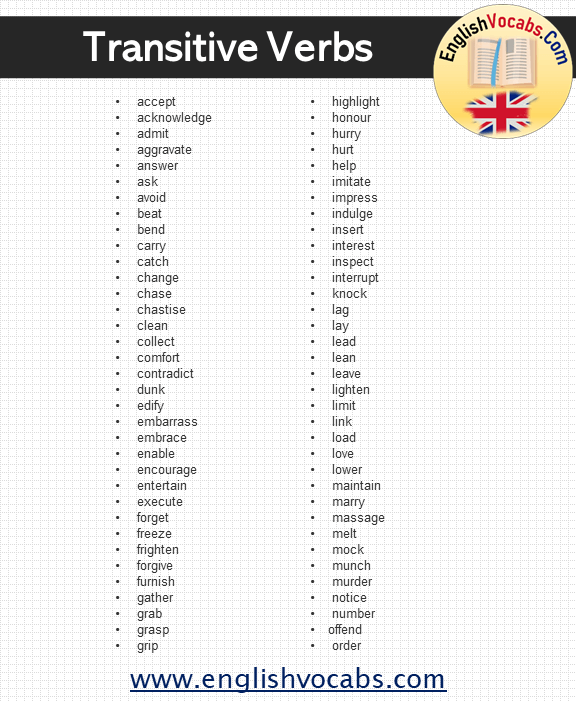40 Transitive Verbs Examples

Table of Contents
Use of Verbs and Verb Types
Words that describe a movement, a situation, or an event in a sentence are called “verbs”. In terms of English grammar, verbs should also be used correctly in a sentence. Verb types and the use of these varieties are required for a correct sentence structure and a correct meaning. It is possible to see that verbs are grouped under two general headings in grammar. The verbs are more detailed in these 2 main headings.
Non-Stative Verbs or Action Verbs
The verbs under this title directly describe what the subject is busy with at that moment. In particular, these verbs contain visible, in other words, concrete action and situations. The use of such verbs is known as the Simple Present Tense and the Present Continuous Tense.
- My mother is cleaning the house now.
- She plays sports every morning.
- I’m doing dinner tonight.
- He is holding a large package in his hand.
Transitive Verbs
The fact that these verbs have a subject makes them transitive verbs. For the verb “What?”, “What?” and “Who?” questions are asked. If a word in the sentence answers these questions, that verb becomes transitive.
- I saw a long black snake in the garden.
- The verb is asked the question “What” I saw? “The answer to this question is” long black snake”. In this case, the verb is transitive in this sentence because the answer comes from within the sentence to the question asked to the verb.
- I’m going to see my nephew today.
- “Who will I see?” When this question is asked to a verb, “my nephew” in the sentence is the answer. In this case, the verb “see” is a transitive verb in this sentence.
Intransitive Verbs
Verbs here do not have an object. Questions asked for transitive verbs cannot be answered here. Here the subject is directly affected by the verb.
- The bus left the station.
- It is the bus that leaves the station. The bus itself does the “left” action, there is no object.
Stative Verbs or Non-Action Verbs
Verbs of this type do not indicate an event or action, they just describe situations experienced. The meaning of the verb is not concrete, it is not visible.
- My mom wants a big gift.
- The verb “Want” indicates the situation experienced here. This action cannot be observed.
Here are 184 Transitive Verbs List
- accept
- ask
- bother
- carry
- catch
- change
- clean
- describe
- destroy
- distinguish
- drag
- fascinate
- finish
- follow
- flick
- forget
- imitate
- irritate
- kiss
- knock
- load
- love
- lower
- maintain
- smell
- soften
- specify
- spell
- spit
- spread
- strike
- warm
- wash
- warn
- win
- wipe
- wrack
- wrap
- wreck
- weep


